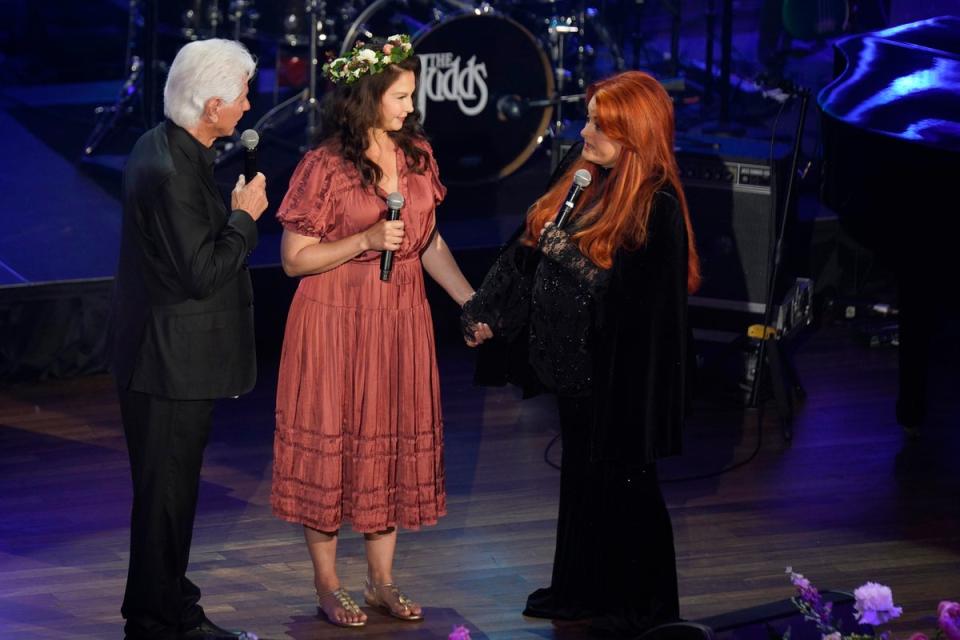Naomi Judd’s daughter Ashley calls for changes to laws around bereaved families after mother’s death
- Oops!Something went wrong.Please try again later.
Ashley Judd has said that having her mother Naomi’s suicide play out in public caused her “trauma” and “horror”.
The country musician died of suicide in April aged 76, one day before she was due to be inducted into the Country Music Hall of Fame.
The Judd family later filed a court petition asking that police reports and recordings made during the investigation into her death be sealed, as releasing them would cause “significant trauma and irreparable harm”.
However, knowing that the information would be made public, Ashley said that her mother had died by suicide and urged people to reach out to the National Suicide Prevention Lifeline (800-273-8255). She said that her family had agreed she should discuss her mother’s death to help raise awareness of the cause, and the availability of help.
Now, Ashley has written a piece for The New York Times titled: “The Right to Keep Private Pain Private” about her mother’s death.
“April 3 2022, was the most shattering day of my life,” she wrote. “My beloved mother, Naomi Judd, who had come to believe that her mental illness would only get worse, never better, took her own life that day. The trauma of discovering and then holding her labouring body haunts my nights.
“The horror of it will only worsen if the details surrounding her death are disclosed by the Tennessee law that generally allows police reports, including family interviews, from closed investigations to be made public.”
She continued: “Naomi lost a long battle against an unrelenting foe that in the end was too powerful to be defeated. I could not help her. I can, however, do something about how she is remembered.

“And now that I know from bitter experience the pain inflicted on families that have had a loved one die by suicide, I intend to make the subsequent invasion of privacy – the deceased person’s privacy and the family’s privacy – a personal as well as a legal cause.”
Ashley said that she wants laws to be changed to “provide some basic protections for those involved in the police response to mental health emergencies”.
“Those emergencies are tragedies, not grist for public spectacle,” she wrote.
“[Naomi] should be remembered for how she lived, which was with goofy humour, glory onstage and unfailing kindness off it — not for the private details of how she suffered when she died.”
If you are experiencing feelings of distress and isolation, or are struggling to cope, the Samaritans offers support; you can speak to someone for free over the phone, in confidence, on 116 123 (UK and ROI), email jo@samaritans.org, or visit the Samaritans website to find details of your nearest branch.
If you are based in the USA, and you or someone you know needs mental health assistance right now, call National Suicide Prevention Helpline on 1-800-273-TALK (8255). The Helpline is a free, confidential crisis hotline that is available to everyone 24 hours a day, seven days a week.
If you are in another country, you can go to www.befrienders.org to find a helpline near you.

